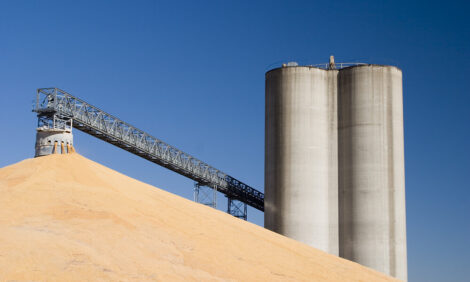



New Slaughter Code Could Be Problematic For Rural Butchers
NEW ZEALAND - The Animal Welfare (Commercial Slaughter) Code of Welfare 2010, issued by the Minister of Agriculture, encourages all those involved in the commercial slaughter of animals to adopt welfare requirements to ensure animals are humanely killed.The code covers all aspects of commercial slaughter (defined as the killing of animals where a business transaction takes place) and came into effect from 28 May 2010.
National Animal Welfare Advisory Committee (NAWAC) Chairman John Hellstrom says the code provides clear guidelines with regard to the way people care for animals beyond the farm.
"It sets out general principles and recommendations for best practice, ensuring animals do not suffer unreasonable or unnecessary pain and distress when they are killed."
"New Zealand’s excellent animal health and welfare status is vigorous. The commercial slaughter code of welfare is another component to a system ensuring animals are treated appropriately from farm to fork."
Included in the code are requirements for pre-slaughter handling facilities, procedures to minimise animal stress; and processes to ensure immediate loss of consciousness during stunning to prevent animals from feeling pain. Minimum standards include:
- approved stunning methods and processes for all mammals and birds;
- handling and killing procedures for crabs, crayfish and freshwater crayfish, whether commercially farmed or wild-caught;
- handling and killing procedures for farmed and wild-captured finfish (including eels) caught and held for killing at a later time, such as in a restaurant;
- the need for each slaughter premise to implement a quality assurance programme.
"The code requires all animals slaughtered commercially in New Zealand to be stunned prior to killing. This is to ensure animals at slaughter are treated humanely and in accordance with good practice and scientific knowledge.
Federated Farmers Rural Butchers is looking work with the Ministry of Agriculture (MAF) to ensure that all rural butchers understand the new Animal Welfare (Commercial Slaughter) Code of Welfare 2010.
“Federated Farmers Rural Butchers was looking to Government to issue a completely separate code for rural butchers, as opposed to a ‘one shoe’ solution covering the entire all meat processing sector,” says Mike Hanson, Federated Farmers Rural Butchers chairperson.
“It’s a question of scale because the Code applies equally to whether you are the largest processing plant in New Zealand or a sole trader homekill operation.
“While Federated Farmers Rural Butchers supports the need for new codes, this one requires all stock to be stunned before they are slaughtered.
“It takes no account of the fact that rural butchers are trained to very high standards in the humane dispatch of animals. In my experience, I’m not aware of any qualified rural butcher who has faced an animal cruelty charge.
“Federated Farmers Rural Butchers is especially looking out for the interests of those who will face practical and financial issues. For sole traders especially, it will be a big imposition as the Code also raises health and safety issues for our members.
“While many of our members deploy multiple solutions, some sole traders will struggle to carry out the tasks required of them under the new Code. It’s something we intend to take up with the MAF once we get wider feedback from affected members.
“As the Code is issued under the Animal Welfare Act 1999, any failure to abide by its standards can lead to prosecution.
“Federated Farmers Rural Butchers is now working to educate homekill providers about the Code’s requirement. We will work with MAF Biosecurity New Zealand to ensure that the requirements are met but with the least financial risk to our industry sector.
“Federated Farmers Rural Butchers will also look to get MAF officials out with rural butchers to highlight some of the practical difficulties the Code raises,” Mr Hanson concluded.
TheCattleSite News Desk


